Program duration: 1.5 years
Maximum number of credits per semester: 18
Language of instruction: English
Form of study: full-time (classes take place primarily at evening time)
Number of credits: 48 / 90 ECTS
The Master of Economics program offers contemporary knowledge in the areas:
- Management of investment projects in the public and private sector
- Governance of organizations
- Financial analysis and corporate finance
- Macroeconomic policies and international financial markets
- Design of strategies for organizations
- The handling and analysis of data
Our study program is unique with courses that are unrivalled in the region. The program consists of theoretical and applied subjects in economics, finance and statistics. Members of the program faculty team are professionals with international experience who actively conduct research and publish in international journals. Program faculty hold PhD’s from leading international universities in Germany, the US, Sweden, the UK and the Russian Federation.
Program graduates are highly qualified and skilled professionals who apply their knowledge in many different areas: they successfully work in banks, the financial industry and national and international financial institutions as financial analysts, data scientists and managers. They also work in other private sector firms, in government, in academia or they run their own businesses.
For more detailed information on the program and course transfers please refer to your program coordinator.
Program Coordinator, College of Social Sciences, KIMEP University, Abai avenue 4, 050010, office # 503 A, Almaty, Republic of Kazakhstan Tel.: (727) 270 42 12, e-mail: css_coordinator@kimep.kz
| Subject Names | KIMEP Credits | ECTS – Credits |
| Program Foundation required courses | 5 | 6 |
| Professional Foreign Language | 2 | 2 |
| Management for Social Sciences | 1 | 2 |
| Psychology for Social Sciences 2 | 2 | 2 |
| Program Foundation Elective courses | 6 | 9 |
| Microeconomics | 3 | 4,5 |
| Macroeconomics | 3 | 4,5 |
| Introduction to Statistics | 3 | 4,5 |
| Introduction to Game Theory | 3 | 4,5 |
*Students must complete two courses (6 credits in this category. ECN 5021 Microeconomics, ECN5031 Macroeconomics and ECN 5012 Econometrics are prerequisites for Advanced Microeconomics, Advanced Macroeconomics and Advanced Econometrics. Students who have done intermediate coursework at the undergraduate level with satisfactory results can request these prerequisites to be waived.
| Subject Names | KIMEP Credits | ECTS – Credits |
| Program Major required courses | 15 | 25 |
| Research Methods for Social Sciences | 3 | 5 |
| Advanced Econometrics | 3 | 5 |
| Advanced Microeconomics | 3 | 5 |
| Advanced Macroeconomics | 3 | 5 |
| Professional Internship | 3 | 5 |
| Program major elective courses | 12 | 20 |
| Econometrics | 3 | 5 |
| International Trade | 3 | 5 |
| Emerging Markets and Powers | 3 | 5 |
| Theory of Corporate Finance | 3 | 5 |
| Selected Topics in Economics | 3 | 5 |
| Seleсted Topics in Financial Economics | 3 | 5 |
| Experimental Research Work | 6 | 18 |
| Research Seminar | 3 | 10 |
| Research Internship | 3 | 8 |
| Final Attestation | 4 | 12 |
| Thesis and Thesis Defense | 4 | 12 |
| Total | 48 | 90 |
MAE program offers a major in Financial Economics.
Students selecting this major have to take the ECN 5354 Advanced Financial Economics (3/5 ECTS) course and two electives from the following list:
| Course Code | Course Title | Credits | ECTS | Prerequisites |
| ECN5053 | Game Theory | 3 | 5 | None |
| ECN5054 | Mathematical Modeling | 3 | 5 | None |
| ECN5352 | Advanced Financial Econometrics | 3 | 5 | ECN5354/ECN5012 |
| ECN5355 | Theory of Corporate Finance | 3 | 5 | ECN5354 |
| ECN5891 | Selected Topics Fin Economics | 3 | 5 | ECN5354 |
Course (Credit) Transfer
KIMEP University can transfer credits earned in another program/university, if the courses are equivalent to the courses offered by the program at KIMEP University. A Department committee shall consider each student’s case individually and make an appropriate decision. KIMEP University transfers a maximum 25 % of the total amount of the credits from bachelor to a master program.
ECN5041 Management (1 Credit)
Prerequisites: ECN5021 (can be waived for students with undergraduate coursework in economics)
This course deals with the functions of management of organizations. It analyses organizational structure, motivation and incentive conflicts, human resources and compensation schemes, organizational culture and ethics.
ECN5042 Psychology and Behavioral Economics (2 Credits)
Prerequisites: ECN5021 (can be waived for students with undergraduate coursework in economics)
This course gives an introduction to psychology and its applications to learning, management and interpersonal relations. It gives an overview of the interconnection between psychology and economics covering such topics as consumer choice, happiness measures, social preferences and behavioral approaches to policy and finance.
ECN5013 Advanced Econometrics (Econometrics II, 3 Credits)
Prerequisites: ECN5012 (can be waived for students with undergraduate coursework in economics)
This course begins with fundamentals of advanced econometric modeling methods and techniques. This considers in detail econometric model formulation and estimation in multi equation settings. Topics covered are seemingly unrelated regression models, simultaneous equation models, panel data models, advanced time series models, probit, logit and limited dependent variable models. Students practice their skills with statistical packages such as Eviews.
ECN5022 Advanced Microeconomics (Microeconomics II, 3 Credits)
Prerequisites: ECN5021 (can be waived for students with undergraduate coursework in economics)
This course provides a rigorous introduction to advanced microeconomic analysis. It covers consumer theory, auction theory and general equilibrium analysis, incorporating uncertainty, asymmetric information and externalities.
ECN5032 Advanced Macroeconomics (Macroeconomics II, 3 Credits)
Prerequisites: ECN5031 (can be waived for students with undergraduate coursework in economics)
This course covers advanced topics in macroeconomic theory such as models of economic growth, rational expectations models, models of currency crises, nominal rigidities, business cycle theory, time inconsistency and microeconomic foundations of aggregate behavior.
ECN5093 Project Planning and Welfare (3 Credits)
Prerequisites: ECN5021 (can be waived for students with undergraduate coursework in economics)
This course gives an introduction to the planning and budgeting of projects and their evaluation in terms of private and social desirability. It covers issues such as measurement, accounting for risk and choosing a discount rate and combines the rigorous treatment of welfare theoretic foundations of cost-benefit analysis with its practical application.
ECN5801 Research Methods and Methodology (Thesis I) (3 Credits)
Prerequisites: None
The methods and methodology of academic research are studied, using samples of work by outstanding economists. Students are urged to develop their own ideas and projects. The course will guide the student through a substantial amount of writing, including a term paper. At the end of the course students should write proposal of future Master dissertation.
ECN5990 Research Seminar (3 Credits)
Prerequisites: ECN5801
The student shall undertake a seminar class with an instructor and orally defend his/her thesis proposal. At the same time, he will have a supervisor who works with him/her towards preparing the thesis.
ECN5991 Thesis (6 Credits)
Prerequisites: ECN5990 or concurrent enrollment
The student under the supervisor shall complete his/her thesis and publicly defend it.
ECN5888 Internship in Economics for MA (6 Credits)
Prerequisites: Permission of academic advising faculty member and permission of the employer.
This independent research project, undertaken in a work environment, provides students with data, people, and experience for studying an economic issue. Related readings, a daily journal, and an analytical paper supervised by a faculty member are required. The student must obtain permission before the start of the semester in which he enrolls.
ECN5999.1 Comprehensive Examination (1 credit)
Students will take an exit test that evaluates their competencies in the filed of economics.
Foundation Electives
|
Course Code |
Course Title |
Credits |
|---|---|---|
|
ECN5021 |
Microeconomics |
3 |
|
ECN5031 |
Macroeconomics |
3 |
|
ECN5052 |
Statistical Methods |
3 |
|
ECN5053 |
Game Theory |
3 |
|
ECN5054 |
Mathematical Modeling |
3 |
|
ECN5352 |
Advanced Financial Econometrics |
3 |
|
ECN55354 |
Advanced Financial Economics |
3 |
|
TOTAL |
|
6/18 |
ECN5021 Microeconomics (Microeconomics I, 3 Credits)
Prerequisites: none
This course covers consumer and producer theory, welfare measures and analyzes different market forms.
ECN5031 Macroeconomics (Macroeconomics I, 3 Credits)
Prerequisites: none
This course introduces standard concepts of macroeconomic theory including growth theory, aggregate demand and supply, stabilization policy and open economy macroeconomics. It gives an overview of the current macroeconomic debate.
ECN5052 Statistical Methods (3 Credits)
Prerequisites: none
This course uses advanced statistical methods such as multivariate data analysis with estimation, hypothesis testing factor analysis and cluster analysis.
ECN5053 Game Theory (3 Credits)
Prerequisites: none
This course gives an introduction to the mathematical analysis of strategic interaction in conflict and cooperation. It includes repeated games, Bayes-Nash equilibrium, sequential games and introduces cooperative concepts such as core and Nash solution.
ECN5054 Mathematical Modeling (3 Credits)
Prerequisites: none
This course provides an overview of mathematical models which are used in economics and empirical modeling, encompassing data mining and flexible methods of modeling.
ECN5352 Advanced Financial Econometrics (3 Credits)
Prerequisites: ECN5354, ECN5012 (can be waived for students with undergraduate course work in economics)
This course will introduce students to advanced econometric methods and methodology to model and forecasting the various issues in financial assets and markets determinands such as prices and returns. Given the wide scope of financial econometrics modeling, this course includes both the univariate and multivariate time series financial data analysis in terms of modeling, estimating and forecasting for decision making. For the linear, dynamic expectations and volatility financial modeling process, it introduces advanced techniques such as ARIMA, VARMA, ARCH, GARCH, TARCH, VAR, VMA, co -integration and error correction procedures. Model tests in applied project setting include capital asset pricing, options pricing models among others.
ECN5354 Advanced Financial Economics (3 Credits)
Prerequisites: ECN5021 Microeconomics (can be waived for students with undergraduate course work in economics)
This course applies economic analysis to financial decisions and equilibrium in financial markets. It discusses in detail market efficiency, behavioral finance, the theory and empirics of optimal portfolios, option pricing and security design.
Program Electives
|
ECN 5012 |
Econometrics |
|
ECN5051 |
Money and Banking |
|
ECN5142 |
International Trade |
|
ECN5143 |
International Finance |
|
ECN5226 |
Industrial Organization |
|
ECN5261 |
Public Economics |
|
ECN5271 |
Emerging Markets and Powers |
|
ECN5296 |
Labor Economics |
|
ECN5334 |
Monetary Economics |
|
ECN5354 |
Financial Economics |
|
ECN5890 |
Selected Topics in Economics |
|
ECN5891 |
Selected Topics in Financial Economics |
|
ECN5355 |
Theory of Corporate Finance |
ECN5012 Econometrics (Econometrics I, 3 Credits)
Prerequisites: None
Econometrics deploys economics, mathematics and statistics to specify economic relationships that help people forecast and make decisions. The course presents basic concepts in econometrics methods and methodology, regression models with time series, cross section and qualitative data. Topics in estimating single equations models are including Distributed lag models, causality problems, and dummy variables models in particular. Application of econometric models in real world economic data analysis will also be covered in the course.
ECN5142 International Trade (3 Credits)
Prerequisites: ECN5021 (can be waived for students with undergraduate coursework in economics)
This course covers the basic theory of trade, including gains from exchange and specialization; factor and goods prices; tariffs; imperfect competition in trade; distortions in commodity and factor markets; and economic integration. . Topics include: Ricardian theory of comparative cost; the Heckscher-Ohlin model and the impact of factor abundance on trade; increasing returns and product differentiation; factor movements; commercial policy — tariffs, quotas, export subsidies, and infant industries; international oligopoly and strategic trade; and economic integration, exemplified by free trade areas and customs unions. The course complements one on international finance but can be taken alone. A basic undergraduate course in trade would be useful although not necessary. Students should also have had an undergraduate course in intermediate or advanced microeconomic theory. The course deploys calculus and basic statistics.
ECON5143 International Finance (3 Credits)
Prerequisites: ECON5031 (can be waived for students with undergraduate coursework in economics)
This course deals with macroeconomics, financial markets, and monetary institutions, all from an international point of view. The field is eclectic, so the course can cover only a few theoretical topics: The balance of payments; international asset markets; and the exchange rate. The course concludes with contemporary policies in the international monetary system. The course complements International Trade (ECON5142) but can be taken alone. Students should have had undergraduate macroeconomics and microeconomics. Basic undergraduate courses in international trade and finance, as well as in money, would be useful. The course will use calculus and basic statistics.
ECN5226 Industrial Organization (3 Credits)
Prerequisites: ECN5021 (can be waived for students with undergraduate coursework in economics)
The study of industrial organization is important for understanding industrial economics and corporate behavior. It is also essential for students aiming to serve the industrial sector of the economy. The course focuses on an empirical and theoretical examination of the structure, conduct, and performance of firms and industries at the micro and macro level. What determines the market structure and how is it measured? How do firms in an industry behave or perform in a given market structure? The course emphasizes production and cost functions; productivity growth; technical change and technical efficiency; corporate investment; dividend policy; and financing behavior. Major topics include the theory of the firm; profit maximizing and growth maximizing models; price and output determination under different market structures; and measures of market structure and market performance.
ECN5261 Public Economics I (3 Credits)
Prerequisites: ECN5021 (can be waived for students with undergraduate coursework in economics) 1
This course examines the role of the public sector in the economy. It analyzes the behavior of the public sector and the incidence of its attempts to fulfill allocation, distribution and stabilization functions. It begins by asking the central questions of whether or not markets work, and if not, what is to be done about it. It discusses the market failures — externalities, public goods, imperfect competition and asymmetric information — that arise when competitive markets cannot give a socially desirable outcome. Topics may include the provision of public and private goods; collective decision-making; taxation –tax incidence, equity, efficiency, and optimal taxation; theory of and evidence on government expenditure policy; redistribution and welfare policy; social cost-benefit analysis; fiscal aspects of macroeconomic theories; and local government. This would be a good course for students interested in: 1) generally, the economist’s view of the appropriate roles for government within markets; 2) specifically, in the analysis and institutional background of government programs and initiatives –in both expenditures and taxation.
ECN5271 Emerging Markets and Powers (3 Credits)
Prerequisites: ECN5021 (can be waived for students with undergraduate coursework in economics) 1
Emerging markets is an overarching concept describing a group of countries with common issues and a similar role in the international system. This course critically discusses the concept of emerging markets and the role of institutions, natural resources and international organizations in their development. It reviews economic growth, open economy macroeconomics and geography as they pertain to emerging markets and introduces case studies.
ECN5296 Labor Economics (3 Credits)
Prerequisites: ECN5021 (can be waived for students with undergraduate coursework in economics)
This course develops theoretical models of the labor market, presents related empirical research, and discusses policy applications. Topics include labor supply, labor demand, market equilibrium and compensating wage differences, investment in human capital, and cyclical unemployment. Additional topics may include labor unions, minimum wage laws, compensation policies and productivity, wage indexation, and discrimination and equal-opportunity laws.
ECN5334 Monetary Economics (3 Credits)
Prerequisites: ECN5031 (can be waived for students with undergraduate coursework in economics)
This course covers basic concepts such as the demand for and the supply of money. It consists of three parts: Theory of Money, Monetary Macroeconomics, and Monetary Policy. The first part examines the origin and concept of money and the structure of the money market. The second part is an extension of Macroeconomics related to monetary issues. The third part examines the contemporary theories of monetary policy. The course examines Classical, Keynesian and Rational Expectations theories of money as well as Cagan’s study of hyperinflation. Then it deals with the contemporary theories of monetary policy, including those addressing the choice between rules and discretion and the choice of monetary regime.
ECN 5354 Financial Economics (3 Credits)
Prerequisites: ECN5021, ECN5031 (can be waived for students with undergraduate coursework in economics)
This course surveys foundations of modern financial economics. It applies economic analysis and modern theory of finance to investors and firms. Topics related to investors include portfolio theory, Capital Asset Pricing Model, options and futures contracts, including the Black-Scholes option pricing model and bond analysis. Related topics for firms include discounted cash-flow techniques in relation to budgeting problem associated with alternative investment projects, capital structure, including new issues of securities, debt and dividend policy based on the value of the firm. fIssues related to mergers and acquisition, financial distress and bankruptcy, and corporate restructure will be discussed. Students will read journal articles to related topic covered.
ECON5829 Quantitative Methods for Economics (3 Credits)
Prerequisites: None
This course covers topics necessary for Econometrics, Financial Economics, Actuarial Economics, and intermediate economic courses. Those topics include: probability distribution, statistical inference and linear regression, as well as matrix algebra and techniques of Calculus applied to optimization in economics.
ECN5889 Research Project (3 Credits)
Prerequisites: Permission of academic advising faculty member
A research project is in depth study of the economy of Kazakhstan or CIS countries or in any other area in the field of economics and business. Proposals must show a clear promise of higher level work and be approved by a faculty sponsor and either the chair or undergraduate program director.
ECN5890 Special Topics in Economics (3 Credits)
Prerequisites: varies depending on the topic
Selected topics in Economics of interest to students and faculty. The course may be repeated for credit if the topics are different.
ECN5891 Selected Topics in Financial Economics (3 Credits)
Prerequisites: ECN5354
The course examines particular issues and contemporary subject areas in Financial Economics at an advanced level. Selection of topics depends on students and instructors preferences.
ECN5355 Theory of Corporate Finance (3 Credits)
Prerequisites: ECN5354
The course develops an in-depth understanding of the financial relations of the firm and their impact on corporate governance. Topics include the theoretical and empirical study of the financial structure of the firm, financing constraints, risk management, contracting and monitoring under asymmetric information, control rights, mergers and acquisitions and security design.
Major in Financial Economics
Students may declare Financial Economics their major. A student who majors in Financial Economics has to take ECN 5354 Advanced Financial Economics and one other of the following foundation elective courses:
|
Course Code |
Course Title |
Credits |
|---|---|---|
|
ECN5053 |
Game Theory |
3 |
|
ECN5054 |
Mathematical Modeling |
3 |
|
ECN5352 |
Advanced Financial Econometrics |
3 |
|
TOTAL |
|
6/9 |
ECN5053 Game Theory (3 Credits)
Prerequisites: none
This course gives an introduction to the mathematical analysis of strategic interaction in conflict and cooperation. It includes repeated games, Bayes-Nash equilibrium, sequential games and introduces cooperative concepts such as core and Nash solution.
ECN5054 Mathematical Modeling (3 Credits)
Prerequisites: none
This course provides an overview of mathematical models which are used in economics and empirical modeling, encompassing data mining and flexible methods of modeling.
ECN5352 Advanced Financial Econometrics (3 Credits)
Prerequisites: ECN5354, ECN5012 (can be waived for students with undergraduate course work in economics)
This course will introduce students to advanced econometric methods and methodology to model and forecasting the various issues in financial assets and markets determinands such as prices and returns. Given the wide scope of financial econometrics modeling, this course includes both the univariate and multivariate time series financial data analysis in terms of modeling, estimating and forecasting for decision making. For the linear, dynamic expectations and volatility financial modeling process, it introduces advanced techniques such as ARIMA, VARMA, ARCH, GARCH, TARCH, VAR, VMA, co -integration and error correction procedures. Model tests in applied project setting include capital asset pricing, options pricing models among others.
The foundation elective may be replaced by any graduate level FIN course with the permission of the chair.
In addition, the student has to take one of the following major electives:
|
Course Code |
Course Title |
Credits |
|---|---|---|
|
ECN5355 |
Theory of Corporate Finance |
3 |
|
ECN5891 |
Selected Topics in Financial Economics |
3 |
|
TOTAL |
|
6/9 |
The major elective may be replaced with any graduate level FIN course with the permission of the chair.
Economics is the all-purpose specialization! KIMEP University MAE program graduates successfully work in investment and commercial banks and in other financial public and private enterprises, run their own businesses, perfectly understand the international financial market and take a great part in external economical projects.

Xiaotong Zhang
Professor, Department of International Relations and Regional Studies /College of Social Sciences and Director of China and Central Asian Studies Center (CCASC – www.ccasc.kz)
More:
Education:
Ph.D., Political Science at Université Libre de Bruxelles
Most significant publications in the last 5 years:
- Zhang Xiaotong, Colin Flint, ‘Why and Whither the US-China Trade War?: Not Realist ‘Traps’ but Political Geography ‘Capture’ as Explanation’, (2021), 55, Journal of World Trade, Issue 2, pp. 335-358
- Colin Flint and Zhang Xiaotong, “Historical–Geopolitical Contexts and the Transformation of Chinese Foreign Policy”, The Chinese Journal of International Politics, 2019, 1–38
- “From Wealth to Power: China’s New Economic Statecraft”, The Washington Quarterly, Spring Issue, 2017
Some facts from Dr. Zhang’s employment history
Full Professor, Institute of Belt and Road Initiative & Global Governance, Fudan University, Shanghai, China, 2020-
Full Professor, School of Political Science and Public Administration, Wuhan University, Wuhan, China, 2016-2020
Associate Professor, School of Political Science and Public Administration, Wuhan University, Wuhan, China, 2012-2016
Vice Dean, Institute of International Studies, Wuhan University, Wuhan, China, 2017-2020
Executive Director, Wuhan University Centre for Economic Diplomacy, Wuhan, China, 2013-2020
Executive Director, the Joint Research Centre for Caribbean Studies between Wuhan University and the University of the West Indies – St. Augustine Campus, 2015-2020
Deputy Director, US Desk, Ministry of Commerce, China, 2010-2012

Dilara Orynbassarova
Assistant Professor, Department of International Relations and Regional Studies, College of Social Sciences
More:
Dilara Orynbassarova is an Assistant Professor in the College of Social Sciences at KIMEP University.
Dr.Dilara Orynbassarova obtained her Ph.D. in Education with distinction from Graduate School of Education, Nazarbayev University. She completed her BSS and MPA degrees with diploma of excellency at KIMEP university.
She served on academic and research activities at the Nazarbayev University, University of Pennsylvania (USA), KIMEP University and the Eurasian Research Institute. She also headed division for analysis and quality in the Independent Agency for Quality Assurance in Education, served in the Office of Prime Minister of Republic of Kazakhstan, Department of Informational Analytic Center (traineeship) and Center for Research and Consulting.
Dr. Dilara teaches course on Introduction to Social Sciences at KIMEP. The courses co-taught and assisted elsewhere include Communication and Society, World Prehistory, Professional Identity, Learning to Work, Academic Writing for Doctoral Students, English for Research.
Her current research interests include innovation in higher education system and policy, multi-stakeholder and cross-sector partnerships, and social network analysis.
E-mail: d.orynbassarova@kimep.kz
Publications:
- “Delivering Environmental Education in Kazakhstan Through Civic Action: second-wave values and governmental responses,” Environmental Values, 1, (2013), 101-122, with Dennis Soltys, UK, Harris
- “Family Medicine as a Model of Primary Health Services Delivery: A Pilot Study in Almaty, Kazakhstan”, Central Asian Journal of Global Health, 4 (1), (2015), USA, University of Pittsburgh Press (Master Thesis Publication, USA, University of Pittsburgh) (Indexedin PubMed and Emerging Sources Citation Index (ESCI) of the Web of Science)
- “Entrepreneurial University Perspective: Tracking Labor Force Capacity to Support Industrialization Processes in the Emerging Markets, Evidence from Kazakhstan Data”. EMAJ: Emerging Markets Journal 6(2), (2016), 5-11. USA, University of Pittsburgh Press. (Indexed in DOAJ, WorldCat)
- “Teacher Education Research in Central Asia: An Analysis of Journal Publications (2006-2016), The Case of Kazakhstan”. Eurasian Research Journal, 2(1), (2020), 81-95.
Conference proceedings
- “Developing University-Industry-Government Research Partnerships in Republic of Kazakhstan: factors enhancing and constraining”. Jun 15, (2020).The Proceedings of the 18th Triple Helix Conference. Future of innovation and Innovation for future online. Finland, Tampere University, 21-23.
- “Modernization of Teacher Education in Kazakhstan: Experience of Finland”. Asyavrupa, 4 (46), (2019), 71-77.
- “Teacher Education in the Context of Transformation Processes in Kazakhstan: Challenges and Perspectives”, Sep 19, (2017). The Collection of the International Conference on Institutionalization of Innovative Education Environment of High Pedagogic School, Kazakhstan, Pavlodar, Ministry of Education and Science of Kazakhstan and National Pedagogic Institute of Pavlodar.
- “Policy Reception of Cascade In-Service Teacher Education Model in Kazakhstan through the Lens of Policy Borrowing Theory”, Jun 15-16, (2017), 340 (142), 79-84 The Collection of IV International Scientific-Practical Conference on Science and Education in Globalization Processes, Russian Federation
- “Developing Research Competence Through a Student-Run Peer-Review Journal at Higher Education Institutions of Kazakhstan”, May 19-20, (2017), The Collection of the II-nd Annual Conference on Academic Integrity and University Governance, Kazakhstan, Astana, with Philip Montgomery, Anna CohenMiller and Kamila Kozhabayeva, KAZGUU University and Nazarbayev University.
- “Guidelines for Writing a Book Review: Through the Lens of a First-Year Doctoral Student”. NUGSE Research in Education Journal, 2 (1), (2017), 43-44, Nazarbayev University, Editorial.
- “A Comparative Study of Teacher Attitudes toward Inclusion in Kazakhstan and Turkey: A Literature Review”, (2017),2-16, Preprints of the Eurasian Research Institute for Social and Cultural Studies, Eurasian Research Institute, ERI Working Papers.
- “New Methods and Approaches in Modernizing the Continuous Professional Development of Teachers in the World’s Practice: the case of Finland”, Feb 23, (2017), 15-20, The Collection of the International Scientific-Practical Conference on Continuous Professional Development of Teacher: From High School To Post-Graduate Education, Kazakhstan, Petropavl, National Centre for Professional Development ‘Orleu’ in the North-Kazakhstan region and Institute of Increasing Teachers’ Qualifications and Professional Skills.
- “Putting inclusive principles into practice: teacher attitude and education as factors impacting inclusive education development”, Vol.1, No. 94 (Nov-20, 2015), p 234, The Collection of the II-nd International Scientific and Practical Conference: “Innovations in Education: Research and Solutions”, Kazakhstan, Astana, published by Ministry of Education and Science of Republic of Kazakhstan, National Academy of Education named after Y.Altynsarin and Ural State Pedagogical University.

Ulzhan Kazybekova
PhD, Assistant Professor Department of International Relations and Regional Studies
More:
Education:
PhD in Sociology, The Nottingham University, United Kingdom, 2017
MA in Public Administration, The Nottingham University, United Kingdom, 2009
Bachelor of Public Administration, KIMEP, Kazakhstan, 2008
Courses Taught at KIMEP
Introduction to Social Science; Nutrition in Modern World
Courses Taught Elsewhere
Sociology, Political Science, Cultural Studies, Research Design in Social Policy, The Management Support of Youth Policy, Psychology Management
Research interests:
Gender Inequality, Leadership, Motivation, Education policy
Publications:
- Bugytayeva, S. and Kazybekova, U. (2022). The South Korean component in the doctrines of the United States Presidents (1945-2022). Public Administration and Civil Service journal. Academy of Public Administration under the President of the Republic of Kazakhstan. No 3 (82).
- Polozhentseva, Y., Kazybekova, U., Subalova, M., and Ghosh, A. (2022). We or I? Survival and Success Challenges Jokeasses. Emerald Emerging Markets Case Studies, Vol. 12 No.1.
- Kazybekova U. (2014). Presented the paper on “Working mothers’ understanding of the shift from state to non-state pension provision” (Conference Stream: Negotiating Access to Research Participants) at the 7th Enquire Conference “4D Research: Early experiences of Designing, Debating, Doing and Disseminating Social Research”, The University of Nottingham, School of Sociology and Social Policy, 14th November 2014.
- Kazybekova U. (2013). Presented the paper on “Understanding of working mothers of the shift from state to private pension provision” at the 6th Enquire Conference “Normality in an Uncertain World”, The University of Nottingham, School of Sociology and Social Policy, 10th-11th September 2013.
- Kazybekova U. (2012). New model of educator’s personality in the educational system. Collection of materials of Republican Scientific Conference. “Spiritual and moral component in the triad of education-science-innovation”, Almaty, May 18, 2012, Kazakh Ablai Khan University of International Relations and World Languages.
Contact information:
Office: # 231 Valikhanov building
E-mail: u.kazybekova@kimep.kz

David Porter
David Porter is an Assistant Professor at the Economics Department….
More:
David Porter is an Assistant Professor at the Economics Department. He has obtained his PhD degree in Economics from the University of Georgia, USA.
In January 2021, he joined Florida Gulf Coast University (FGCU ) in Fort Myers, Florida and taught numerous sections of ECO 2023 Microeconomics, both in-person and online, to more than 600 students as a Visiting Instructor. Since 1999, Dr. Porter has been employed in the energy sector as electricity load forecaster, tariff rate forecaster (Enron Energy Services), real-time electricity trader (Enron and Nextera), financial trader (Nextera) and proprietary speculative trader for numerous firms. He has an extensive background in Financial Economics and Monetary Economics dealing with foreign exchange, option pricing, swaps, collars and derivatives.
Dr. Porter joined KIMEP University from the Spring 2023 semester, he is currently teaching “Monetary Economics”, “Money and Banking” and “Financial Management Institutions” courses.
Scholarly Research Papers Published in Peer-reviewed Journals
The Demand for residential, industrial and total electricity, 1973-1998. Kamerchen, D.R. and Porter, D.V., Energy Economics, 26 (1), p.87-100, Jan 2004
- Peer reviewed journal article I co-authored has been used in MIT Graduate Energy Economics course since 2007.
- https://ocw.mit.edu/courses/economics/14-44-energy-economics-spring-2007/readings/
- 266 citations according to Google Scholar.
Market Structure in the US Electricity industry: A long-term perspective. Kamerschen, D.R., Klein, P.G. and Porter, D.V., Energy Economics, 27 (5), p.731-751, Sep 2005
Contact information: d.porter@kimep.kz

Alen Askar
Alen Askar is a Ph.D. candidate in Eurasian Studies at…
More:
Alen Askar is a Ph.D. candidate in Eurasian Studies at Nazarbayev University. He is finishing his dissertation on the history of Tselinograd during the 1950s and 1960s in the context of building an ideal socialist city. His research interests revolve around the history of the Muslim population in the early twentieth-century Russian Empire, memory studies, and historical politics.
In addition to his research pursuits, Alen Askar offers courses on the History of Kazakhstan. Recently, he joined the KIMEP team in Spring 2023 as a senior lecturer. If you would like to contact him, you can do so via email at a.askar@kimep.kz
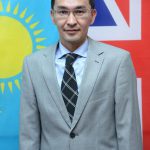
Aslan Tanekenov
(Kazakh) Әлеуметтік ғылымдар факультетінің мемлекеттік басқару кафедрасының ассистент-профессоры
More:
Assistant Professor, Department of Public Administration, College of Social Sciences
Dr. Tanekenov obtained his PhD degree from Heriot-Watt University, UK and MPhil degree from University of Glasgow, UK. His research interests are International civil society organizations; social enterprise, empowerment of socially vulnerable people; cross-sector partnership; volunteering, philanthropy, NGO management.

Dennis Soltys, Ph. D. in Political Science
Adjunct Professor,
Department of Public Administration/College of Social Sciences
More:
Professor Dennis Soltys obtained his PhD from the Department of Political Science, University of Toronto.
He has served on many KIMEP committees, especially concerning accreditations and quality assurance, and is currently the chair of the Department of Public Administration and International Development.
In his 15 years at KIMEP Dr. Soltys has taught a wide variety of courses, including graduate courses in research methods and thesis-writing, public policy of Kazakhstan, comparative education policy, and organization theory. He has publications in top international journals such as Journal of Central Asia, Comparative Education, International Journal (Canada) and Foreign Policy (USA), complemented by numerous conference papers published in Kazakhstan.
His main research interests include the cultural foundations and systemic design of public education in developed and transitional countries, development of civil society in transitional countries, and the public policy of Kazakhstan.
Email: dsoltys@kimep.kz
Tel. (727) 270-4303
Research and Publications:
Soltys, D. (2017). Social transformation with conflict avoidance in Ukraine between the maidans of 2004 and 2014. Post-Soviet Affairs, USA, (submitted, September, 2017).
Soltys, D. (2017). The central role of humanities and social sciences education in powering economic innovation. Vcheni zapysky (Scientific Notes), Kyiv, (forthcoming, July 2017).

Milen Nikolaev Filipov
Assistant Professor, Department of Media and Communication/College of Social Sciences
More:
Research and Publications:
Filipov. M. et. al. (2017). Do Bulgarian Schools Effectively Communicate with Their School Communities? Journal of School Public Relations, 37(2):163-202.
Filipov. M. (2016). Media Release – A Basic Genre in Public Relations. Journal of Contemporary Humanitaristics, 2016(1): 7-18. (co-authorship with Galya Hristozova).

Aigerim Kalybay, Ph. D.
Professor, Department of Economics/College of Social Sciences
More:
Aigerim Kalybay is an Associate Professor at the Department of Economics. After graduating from L.N. Gumilyov Eurasian National University in 1998 she received a research fellow position at the Institute of Mathematics of the Academy of Sciences of the Republic of Kazakhstan. She worked at the Institute of Mathematics for six years, during which in 2002 she attained the degree of Candidate in Physical and Mathematical Sciences. In 2004 she received a grant from the Royal Swedish Academy of Sciences for a two-year postgraduate study at the Luleå University of Technology, where she defended her PhD Thesis in 2006. In the same year she joined KIMEP.
Please also update
Courses taught: Mathematics for Business and Economics, Introduction to Statistics, Calculus, Quantitative methods for Economics, Quantitative Data Analysis, Statistical methods.
Selected Publications:
- A. Kalybay, “One-dimensional differential Hardy inequality”, Journal of Inequalities and Applications, 2017, 2017:21; http://dx.doi.org/10.1186/s13660-017-1293-3 (Published: January 2017).
- A. Kalybay, D. Karatayeva, R. Oinarov, A. Temirkhanova, “Oscillation of a second order half-linear difference equation and the discrete Hardy inequality”, Electronic Journal of Qualitative Theory of Differential Equations, # 43, 2017, 1-16; doi: http://dx.doi.org/10.14232/ejqtde.2017.1.43 (Published: May 2017).
- A. Kalybay, S. Shalginbayeva, “Additive estimates for discrete Hardy-type operators”, Eurasian Mathematical Journal, Vol. 9, #2, 2018, 44-53 (Published: June 2018).
- A. Kalybay, R. Oinarov, “Kernel operators and their boundedness from weighted Sobolev space to weighted Lebesgue space”, Turkish Journal of Mathematics, Vol. 43, 2019, 301-315; http://dx.doi.10.3906/mat-1807-187 (Published: January 2019).
- A. Kalybay, R. Oinarov, A. Temirkhanova, “Integral operators with two variable integration limits on the cone of monotone functions”, Journal of Mathematical Inequalities, Vol. 13, #1, 2019, 1-16; http://dx.doi.10.7153/jmi-2019-13-01 (Published: March 2019).
- A. Kalybay, R. Oinarov, “Estimates of a class of quasilinear integral operators on the set of nonnegative and nonnegative-monotone functions”, Izvestiya: Mathematics, Vol. 83:2, 2019, 61–82; http://dx.doi.org/10.4213/im8613 (Published: March-April 2019).
- A. Kalybay, “Weighted estimates for a class of quasilinear integral operators”, Siberian Mathematical Journal, Vol. 60, # 2, 2019, 291–303; http://dx.doi.org/10.1134/S0037446619020095 (Published: March-April 2019).

Kanat Kudaibergenov, Doctor of Science
Adjunct Professor, Department of Economics/College of Social Sciences
More:
Research and Publications:
Kudaibergenov, K., (2016). On model-theoretic properties in the sense of Peretyat’kin, o-minimality, and mutually interpretable theories. Siberian Advances in Mathematics. ISSN: 1055-1344, vol. 26, No. 3, 190 – 195.
Kudaibergenov, K. (2017). The small index property and the cofinality of the automorphism group. Siberian Advances in Mathematics. ISSN: 1055-1344, vol. 27, No. 1, 1 – 15.

Kristopher White, Ph.D. Geography
Associate Professor, Department of Public Administration/College of Social Sciences
More:
Faculty Profile
- Kristopher D. White
- Associate Professor
- D. Geography, (2002) University of Connecticut
MA Geography, (1996) University of Connecticut
BA Geography, (1992) Clark University
- Teaching Experience: Has been at KIMEP since 2004
Stephen F. Austin State University (Nacogoches, Texas) (2001-2004)
University of Connecticut (Storrs, Connecticut) (1998-2001)
- Classes taught at KIMEP:
Globalization and Diversity
Population and Environment
Human Geography
The Aral Sea Crisis: A Geographical Perspective
Political Geography
Ecology and Sustainable Development
Oil Geopolitics (Graduate seminar)
Oil and Gas Policy
Introduction to Environmental Studies
Digital Photography
Photojournalism
Natural Resource Management and Economics
Research Reading and Writing
- Research Interests:
Geography of Central Asia, Kazakhstan. Regional economy, Aral Sea region, Aral Sea crisis and contemporary socio-economic development in Aral Sea region. .
- Selected Recent Publications
White, K.D. and Micklin, P. 2021. Ecological restoration and economic recovery in Kazakhstan’s Northern Aral Sea region. Focus on Geography 64: doi: 10.21690/foge/2021.64.4f.
White, K.D. 2021. Population, Development, and Environment in Kazakhstan. In: McNicol, B. ed. Sustainable Planet: Issues and Solutions for Our Environment’s Future. Santa Barbara, CA: ABC-CLIO, pp. 29-37.
Micklin, P., Aladin, N.V., Chida, T., Boroffka, N., Plotnikov, I.S., Krivonogov, S., and White, K. 2020. The Aral Sea: A story of devastation and partial recovery of a large lake. In: Mischke, S. ed. Large Asian Lakes in a Changing World: Natural State and Human Impact. Switzerland AG: Springer Nature, pp. 109-141.
White, K.D. 2019. Environmental Issues in Kazakhstan. In: Farazmand, A. ed. Global Encyclopedia of Public Administration, Public Policy, and Governance (Switzerland: Springer Nature).
White, K.D. 2019. Visualizing the languages of nature, society, power and politics in contemporary Kazakhstan. In: Brunn, S.D and Kehrein, R. eds. Handbook of the Changing World Language Map (New York: Springer Nature).
White, K.D. 2018. The snow leopard and cultural landscape in contemporary Kazakhstan. Society and Animals 26: 1-23.
Koch, N. and White, K. 2016. Cowboys, gangsters, and rural bumpkins: Constructing the ‘other’ in Kazakhstan’s ‘Texas.’ In: Laruelle, M. ed. Kazakhstan in the Making: Legitimacy, Symbols, and Social Changes. Lanham: Lexington Books, pp. 181-207.
White, K.D. 2016. Kazakhstan’s Northern Aral Sea today: Partial ecosystem restoration and economic recovery. In: Freedman, E. and Neuzil, M. eds. Environmental Crises in Central Asia: From steppes to seas, from deserts to glaciers. London and New York: Routledge, pp. 129-140.
White, K.D. 2014. Nature and Economy in the Aral Sea Basin. In: Micklin, P., Aladin, N., and Plotnikov, I. eds. The Aral Sea: The devastation and partial rehabilitation of a great lake. Berlin Heidelberg: Springer-Verlag, pp. 301-335.
White, K.D. 2013. A geographical perspective on the Aral Sea crisis: Three interpretations of an image. Bulletin of Geography Socio-economic Series 21: 125-132.
White, K.D. 2013. Nature-Society Linkages in the Aral Sea Region. Journal of Eurasian Studies 4(1): 18-33.
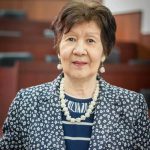
Aliya Nurtaeva, Ph. D. in Chemistry
Adjunct Professor, Department of Public Administration/College of Social Sciences
More:
Dr. Nurtaeva holds an Honors Diploma (1974) and Candidate of Science degrees in Chemistry from Moscow State University (1979 and a Ph.D. in Chemistry from Oklahoma State University (1999). She has more than 30 years of teaching experience including at Al-Farabi Kazakh National University, Oklahoma State University, New Hamphire Technical College, Southern New Hampshire University. She has done research in Chemistry, Technology and Radiation Dosimetry at KazGU, Moscow State University, Oklahoma State University and the Armed Forces Radiobiology Research Institute at National Naval Medical Center in Bethesda (USA) and registered 17 patents.

Nurseit Niyazbekov, Ph. D. Politics
Assistant Professor, Department of International Relations and Regional Studies/College of Social Sciences
More:
Dr Nurseit Niyazbekov is an assistant professor in the Department of International Relations in KIMEP University in Almaty, Kazakhstan. He is researching and consulting various international media and think tanks in the areas of post-communist transitions, democratization, Central Asian state building and protest mobilization. He was a visiting research fellow at the University of Michigan and SciencePO. He obtained his PhD and MSc degrees in Politics and Sociology from the University of Oxford.

Nadeem Naqvi, Ph. D.
Professor, Department of Economics/College of Social Sciences, College of Social Sciences
More:
Research and Publications:
Naqvi, N., & Egbert, H. (2015). Market-Dependent Domestic Production Set. Journal of Economics and Finance Education, 14 (1), 31-40
Naqvi, N. (2017). Production Possibility Frontier: New Concepts for Post-Crisis Economics Textbooks in Ploehn, Juergen and George Chobanov (Eds.), Sustainability and Welfare Policy in European Market Economies, Peter Lang, pp 11-12.

Gerald Pech, Doctorate of Economics
Associate Professor, Department of Economics/College of Social Sciences
Dean, College of Social Sciences
More:
Gerald Pech held teaching and research positions at the Graduate School Bochum and Dortmund, the University of St Andrews, National University of Ireland in Galway, American University in Bulgaria and Johannes-Gutenberg University Mainz. His fields of specialization are game theory, public economics and the economic analysis of institutions.

Francis Amagoh, Ph. D. in Public Policy and Administration
Professor, Department of Public Administration/College of Social Sciences
More:
Research and Publications:
Amagoh, F. (2017). Healthcare in Kazakhstan in The Future of Healthcare in Developing Countries in Asia( Eds. C. Aspalter and K. Pribadi). London: Routledge/Taylor & Francis.
Amagoh, F., & Rahman, T. (2016). Tapping into the Potential of Academic Diaspora for Homeland Development: The Case of Nigeria. Journal of International Migration and Integration .Vol. 17 No. 1, 35-53.

Nygmet Ibadildin, Ph. D. in Political Science and International Relations
Chair of the Department of International Relations and Regional Studies, Department of International Relations and Regional Studies/College of Social Sciences
More:
Nygmet Ibadildin graduated in 1995 from Kazakh State University with major in Philosophy. He made his Master of Arts in International relations in California State University at Fresno. He defended his PhD dissertation in 2011 in University of Tampere, School of Management. Title of dissertation is Role Of New And Old Institutional Framework In Combating The Resource Curse In Kazakhstan”. Dissertation grade is Magna cum laude approbatur.
He was editor and journalist in the Energy of Kazakhstan magazine and in the newspaper Vremya Po form 1999-2002.
Worked in different schools in Kazakhstan and abroad.
Research interests are political economy of natural resources, institutional development, Post-Soviet institutions and discourse analysis.
Currently teaching in KIMEP University, Almaty, Kazakhstan.
Research and Publications:
Ibadildin, N. (2012). Role of institutions in Kazakhstan in combating the resource curse: Transition from the Soviet legacy to something else. London: Lambert Academic Publishing.
Ibadildin, N. (2009). Oil and Authoritarianism in Kazakhstan, in Ostrov, B. (Ed.) From Silk Road to Oil Slick: Kazakhstan Reemergence to Modernity. Norwalk: EastBridge.
List of Publications
Charles McGrath, Nygmet Ibadildin. Kazakh Famine 1928-1932. Publication date.2018/5. Journal Ukrainian Policymaker, Volume 2, 2018: 12-19 DOI: 10.29202/up/2/2
Ken Harvey and Nygmet Ibadildin. Handbook of Research on Human Social Interaction in the Age of Mobile Devices, scheduled for publication in 2016 by IGI Global, Chapter Mobile Impacting All Phases of Business IGI Global 2016
Ken Harvey and Nygmet Ibadildin. Business and mobile: Rapid restructure required June 2016 DOI: 10.4018/978-1-5225-0469-6.ch014
Нефть и политика. Мировой опыт и Казахстан. Казакпарат: Алматы 2015 in Russian
Role Of New And Old Institutional Framework In Combating The Resource Curse In Kazakhstan. Acta Universitatis Tamperensis 1600, Tampere 2011
Role of institutions in Kazakhstan in combating the resource curse
Transition from the Soviet legacy to something else
2011
LAP Lambert Academic Publishing
292 p
Oil and Authoritarianism in Kazakhstan, Chapter for the book From Silk Road to Oil Slick: Kazakhstan Reemergence to Modernity, Edited by Ben Ostrov. Norwalk: EastBridge 2009
Resource Curse avoidance policies in Kazakhstan: issues, debates, difficulties in implementation in The Exploitation Of The Landscape Of Central And Inner Asia: Past, Present And Future Edited by Michael Gervers, Uradyn E. Bulag, Gillian Long, Toronto Studies in Central and Inner Asia, No. 9 Asian Institute, University of Toronto
Toronto, 2008
Kazakhstan. Article for the Routledge Encyclopedia of adolescence, 2007
“Concepts of Political Development and Modernization”, Poisk, Research journal of the Ministry of education and science 2003, 4 (Part II)
“Concepts of Political Development and Modernization”, Poisk, Research journal of the Ministry of education and science 2003, 4 (Part I)
“Historical and Country Lessons in Oil Development”, Poisk , Research journal of the Ministry of education and science 2002 , 4
“Interdependence Of Oil And Politics In Kazakhstan”, Poisk , Research journal of the Ministry of education and science 2002 , 3
“The Great Game. History and today”, Vestnik Vishei Shkoly Kazakhstana, 2002, 1, Almaty
“World Best Practice for Petroleum Fund and Kazakhstan’s Variant”, Poisk , Research journal of the Ministry of education and science 1,2002, p.152-156
“Some Positive and Negative Aspects of Oil Development in Kazakhstan”, Poisk , Research Journal of the Ministry of Education and Science №6, 2001, p.215-218
“International aspects of oil production in Kazakhstan”, Kazakhstan and World Community: Collection of the Articles, edited by M. Zholdasbekov Almaty: Dyke-press, 2000. p.134-143
“What are the Price Determinants for Oil Markets” Materials of the International Conference held by Diplomatic Academy, Astana, January 18-19, 2001 TACIS, FINEK.
“Some Implications of the Recent Constitutional Changes in Kazakhstan”, Working Papers. Symposium: Politics, Economics and Ideology in Kazakhstan, Research Center Almaty, Kazakhstan, KIMEP, 1999, pp. 130-134
“Philosophy and Idealism” Poisk , Research Journal of the Ministry of Education and Science 1999, 1, p.194-199, Almaty,
“Realist, Interdependent and World Systems theories as Explanatory Models of International Relations” Higher Education in Kazakhstan. 1999, 1, pp.119-124, Almaty
“The Economic Miracle and Its Rational Explanations” Poisk, Research Journal of the Ministry of Education and Science. 1998, 3, pp.198-201, Almaty,
“Philosophy as an Apophatic Phenomenon of the Consciousness” Mysl, Republican journal on social and political issues 1998, 6, pp.18-23, Almaty,
“Liberalization in Kazakhstan. Part 1.”, Vestnik Vishei Shkoly Kazakhstana ,1998, 4, pp.135-141, Almaty
“Liberalization in Kazakhstan. Part 2.”, Vestnik Vishei Shkoly Kazakhstana 1998, 5, pp.94-106, Almaty
“Truth. Beauty and Common Good”, Mysl, Republican journal on social and political issues
1998, 6, pp.36-38, Almaty,
“Some Peculiarities of Philosophical Discourse”, Poisk , Research Journal of the Ministry of Education and Science 1998, 3, pp.191-192, Almaty,
“Relationship between Political and Military Elites in Russia”, Vestnik Vishei shkoly Kazakhstana, 1996, 4, pp. 65-70, Almaty
“Kataphatic Definition of Philosophy”, Methodical Recommendations Almaty, “Kazakh Universiteti”, 1997 pp.3-17
“Economic and Political relations of Kazakhstan with Russia, China and United States”, Vestnik Vishei Shkoly Kazakhstana , 1997, 4, pp.75-82, Almaty
“Sino-American Relations” Materials of the First International Scientific Conference on the Role of Sociology, October 23-24 1996, pp.158-167, Almaty, 1997
“Kataphatic Definition of Philosophy” Vestnik Vishei Shkoly Kazakhstana , 1996, 5, pp.114-124, Almaty
“Apophatic Definition of Philosophy”, Vestnik Vishei Shkoly Kazakhstana 1996, 4, pp. 71-81, Almaty
Patents
US Patent PCT/US 2013/049188 Bentonite collars for wellbore casings Craig Benson, Ivan Kornienko, Nygmet Ibadildin – US Patent App. 13/542,390, 2012 WO 2014008325 A1 United States Patent US009080419B2 (12) (10) Patent No.: US 9,080,419 Date of Patent: Jul. 14, 2015
Номер патента: 30703. Узел обсадной трубы и способ изоляции зазора между обсадной трубой и стенкой ствола скважины.. Опубликовано: 15.12.2015. Авторы: Бэнсон Крэг Х., Ибадильдин Ныгмет Амангельдинович, Корниенко Иван Викторович
МПК: E21B 43/10, C09K 3/18, E21B 17/01
Kazakhstan Patent No16322, Е21В 33/14, 14.10.2005 Сушко Сергей Михайлович, Бегун Анатолий Данилович, Ибадильдин Ныгмет Амангендинович, Корниенко Иван Викторович. Способ заканчивания технологических скважин и конструкция герметизирующего стакана
Kazakhstan Patent No15117, 15.12.2004 Цирельсон Людмила Екимовна, Ибадильдин Ныгмет Амангендинович Способ лечения диарейных заболеваний
Kazakhstan Patent No 14313, 05.05.2004 Цирельсон Людмила Екимовна, Ибадильдин Ныгмет Амангендинович Способ получения адсорбирующего средства из коллоидных глин
Kazakhstan Patent No 13071, 15.05.2003 Бухман Михаил Александрович, Ибадильдин Ныгмет Амангендинович Распылительная сушилка
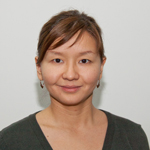
Sholpan Kozhamkulova, Ph.D.
Assistant Professor and Chair, Department of Media and Communications/College of Social Sciences
More:
Currently, Sholpan is on leave to study towards her PhD in Journalism Studies at the University of Maryland. Sholpan Kozhamkulova graduated from Kazakh National University with a BA in Journalism in 2000. She earned an MA in Translation Theory from Abylay Khan Kazakh State University in 2002, an MA in Journalism and Public Affairs from the American University in Washington DC in 2004 and a PhD in Political Communications from KazNU in 2008. Her career includes work as an editor at “Aykos” and teaching positions at Abylay Khan University and KazNU.
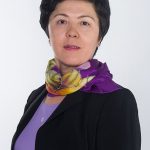
Saltanat Kazhimuratova, M.A. in International Journalism
Senior Lecturer, Department of Media and Communications, College of Social Sciences
More:
Professional journalist, experienced instructor, has been working at KIMEP University since 2003. Graduated from the Advanced training program for faculty of the University of Michigan (USA) and Lund University (Sweden). Member of the Thomson Foundation Editors’ Program, Cardiff, UK. Speaker at international conferences in Germany, Hungary, Turkey, Malaysia, and Spain. Member of the European Communication Research and Education Association (ECREA). Presented at the UNESCO session on journalism education as an expert. Shared her positive experience of teaching journalism at KIMEP University and spoke about the processes of globalization of journalism education in Kazakhstan. Completed an internship for journalists in the USA, got acquainted with the work of the ABC News, The Washington Post, Discovery TV channel and other US media.
Lectures on journalism and mass communications, supervises students’ internships, and coordinates department’s communications with professional communities. Has developed new courses, for example, Fashion and Lifestyle Journalism. Created a practical laboratory for students, where practicing journalists, PR specialists and other media specialists regularly conduct trainings and master classes.
Awarded with the Y. Altynsarin breastplate from the Ministry of Education and Science of the Republic of Kazakhstan. Author of one of the chapters of the first in Kazakhstan textbook on media literacy for university faculty. “The best faculty for 2016-2017” award.
Facebook: https://www.facebook.com/saltanat.kazhimuratova/
Portfolio: https://newreporter.org/author/saltanat/
E-mail: saltanat@kimep.kz
Phone.: +7 (727) 270-42-96

Alma Kudebayeva, Ph. D.
PhD, Professor, Department of Economics/College of Social Sciences
More:
Faculty profile
- Faculty name: Alma Kudebayeva
- Position at KIMEP: Assistant professor, Research Director of CSS
- Education: PhD in Development Economics from the University of Manchester (UK); PhD in Mathematics from KazNU named Al-Farabi (Kazakhstan),
- Experience (teaching / professional)
2020- current Research director of College of Social Sciences, KIMEP University
2004 – current Assistant Professor, KIMEP University.
2015 Teaching assistant at the Institute of Development Policy and Management, the University of
2010- 2011 Research Fellow at the German Institute for Economic Research (DIW) by the Erasmus Mundus Program
2003 –2004 Research Fellow of the Fulbright Program, Indiana University
2001 – 2003 Associate Dean of the college of Economics and Business, Kazakh State National University (KazNU), Kazakhstan
2001-2003 Associate Professor (part-time), International Academy of Business (Almaty)
1995- 2001 Senior Lecturer, KazNU
1992-1995 Lecturer, KazNU
- Classes taught
Principles of microeconomics, principles of macroeconomics, econometric methods, advanced econometrics, financial econometrics, quantitative methods in economics, managerial economics, mathematical economics, economy of Kazakhstan, internship for undergraduate students and graduate students, Research seminar, special topic in economics, thesis seminar, research methods and methodology.
- Research interest: Poverty, inequality, well-being, labour economics, BRI, Central Asia.
- Recent/top publications (with active links)
Reza Arabsheibani, Alma Kudebayeva, Altay Mussurov (2021) “Note on Bride Kidnapping and Labour Supply of Kyrgyz Women”. Economic Systems. https://doi.org/10.1016/j.ecosys.2021.100885
Kudebayeva, A., Sharipova, A., & Sharipova, D. (2021). Social Capital and Subjective Well-Being in Central Asia. Europe-Asia Studies, 1–24. https://doi.org/10.1080/09668136.2021.1973965
Primiano, C. B., & Kudebayeva, A. (2020). What is democracy and who supports it? Findings from a university survey in Kazakhstan. Central Asian Survey, 39(4), 463–479. https://doi.org/10.1080/02634937.2020.1823318
Barrientos, A., and Kudebayeva, A., (2018) “Social Transfers and Women’s Labour Supply in Kyrgyzstan” IZA Institute of Labor Economics, GLM|LIC Working Paper No. 41. https://conference.iza.org/conference_files/GLMLIC_Nepal2019_Conference/kudebayeva_a8594.pdf
Kudebayeva, A., & Barrientos, A. (2017). A Decade of Poverty Reduction in Kazakhstan 2001–2009: Growth and/or Redistribution? Journal of International Development, 29(8), 1166–1186. https://doi.org/https://doi.org/10.1002/jid.3278
Brück, T., Esenaliev, D., Kroeger, A., Kudebayeva, A., Mirkasimov, B., & Steiner, S. (2014). Household Survey Data for Research on Well-being and Behavior in Central Asia. Journal of Comparative Economics, 42(3), 819–835. https://doi.org/http://dx.doi.org/10.1016/j.jce.2013.02.003

Eldar Madumarov, Doctorate in Economics
Chair, Department of Economics/College of Social Sciences
More:
Research and Publications:
Alimbekov, A., Madumarov, E., & Pech, G. (2017). Sequencing in Customs Union Formation: Theory and Application to the Eurasian Economic Union. Journal of Economic Integration 32.
Madumarov, E. (2008) External Factors of Economic Growth: Transition Economies of the Baltics and Central Asia. VDM Verlag, Saarbrücken, August 2008. (Book).
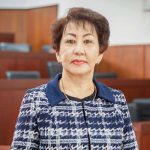
Aliya Kabdiyeva, MPhil
Adjunct Assistant Professor, Department of Public Administration/College of Social Sciences
More:
Research and Publications:
Kabdiyeva, A. (2015). Development of NGOs in Kazakhstan. European Journal of Business and Social Sciences 4 (2), pp. 159-169.
Dixon, J., Kabdiyeva A. (2014). Collaboration between the State and NGOs in Kazakhstan. International Journal of Community and Cooperative Studies 1(1), pp. 27-41.

Azhar Baisakalova, Ph. D.
DBA, Adjunct
Assistant Professor, Department of Public Administration/College of Social Sciences
More:
Research and Publications:
Baisakalova A.B. (2015). Grounded Action Research: Systems Thinking Approach to Promoting CSR in Kazakhstan. Abstracts of the Papers Presented at the ISSS2015 International Conference “Governing the Anthropocene: The greatest challenge for systems thinking in practice?” pp.131-132. Humboldt University, Berlin, Germany, 2-7 August, 2015, ISBN: 978-1-906740-13-9.
Baisakalova A.B. (2016). Responsible Business and Social Entrepreneurship in Kazakhstan. Chapter in the book: The World Guide to Sustainable Enterprise (ed. Wayne Visser), v. 2, 78-83. Greenleaf Publishing. ISBN-13: 978-1-78353-462-3.
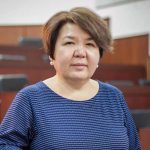
Gulnara Dadabayeva
Professor, Department of International Relations and Regional Studies
Phone: 270-42-79, 270-42-88 ext. 3077
Office:129 /ac
E-Mail: dgulnara@kimep.kz
More:
Professor
Education:
D.Sc. (Historical Sciences), Kazakh National University named after Al-Farabi, Kazakhstan
Work experience:
2005 – present, Assistant Professor, Department of Political Science and International Relations, KIMEP, Kazakhstan
1987 – 2005, Lecturer, Department of History,in Kazakh National University named after al-Farabi, Kazakhstan
Primary teaching areas and teaching experience:
History of Kazakhstan, “Nation-state building in Asian Republics of Soviet Union” ”Government and Politics in Central Asia”, ”Central Asian – Russian Relations”, “History of Diplomacy from 1648 to 1815”, “History of Diplomacy from 1815 to 1945”
Research interests:
Nationalism and nation-state building processes in modern Central Asia.
Selected publications:
Articles
Post-Soviet Kazakhstan: Nationalism and Language Issues. The Soviet and Post-Soviet Review, vol. 37 no. 2 2010, Brill The Netherland, ISSN 1075-1262, e-ISSN 1876-3324 (co-author A. Adibayeva)
Kazakh Nationalism in Eurasian Context. History Research, vol.2, Number 7, July 2012. USA, David Publishing Company, ISSN 2159-550X, ISSN 2159-5518.
El Nasionalismo Kazajo en el Contexto Eurasia Tico, Eurasiatica Revista Online Sobre Asia Central, 2011, 2
Post-Crisis World: The Chinese Factor in The Transformation of Kazakhstan” , co-author A. Adibayeva (submitted for publication by Journal of South Asian and Middle Eastern Studies (USA)
Problems of Refugees from Central Asia as Consequences of Stalin’s Modernization [Проблема Беженцев из Центральной Азии, как Последствия Сталинской Модернизации], Vestnik KazNU, Seriya Istoricheskaya, 2009, 2 (31): С. 11-18
Nationalism in Modern Kazakhstan Language Policy, Otan Tarihy, 2009, 2: 54-63
The Peculiarities of “Russification Processes” in SovietRepublics and Kazakh Language Problems [Особенности Процесса «Русификации» в Советских Республиках и Проблемы Казахского Языка], Аlash, 2009, 1 (22): 104 – 111
Kazakhstan – Russian relations in 2000-s geopolitical context (p. 21-27)// Kazakh civilization, # 3, 2012.
“Great Powers Politics in Central Asia in 2000-s: The New “Great Game”? // KazNU Herald [Вест. КазНУ, сер ист.] – 2013 – №3 (70).- с. 96-103.
Book chapters
“Mackinder’s legacy today: new challenges for Kazakhstan and Central Asia” in Central Asia in International Relations, ed. by Nick Megoran & Sevara Sharapova, Hirst and Co, London, 2013. (co–author A. Adibayeva)
Государственная языковая политика в независимом Казахстане: внешне- и внутриполитические факторы.(с. 270-282) –/ Центральная Азия. Традиции и современность. Под ред. А.О. Чубарьяна. Институт всеобщей истории РАН РК.- Москва, 2011.- 330 с. ISBN 978-5-94067-326-2.
Нациестроительство в Центральной Азии: от советских наций к постсоветским нациям-государствам.(с. 295-317) /Центральная Азия. Традиции и современность. Под ред. А.О. Чубарьяна. Институт всеобщей истории РАН РК.- Москва, 2011.- 330 с. ISBN 978-5-94067-326-2.
Kazakhstan during civil war [Казахстан в годы гражданской войны] //History of Kazakhstan since ancient times to nowadays [История Казахстана с древнейших времен до наших дней (курс лекций)]. – Алматы: Уш Киян, 2003. – С. 360-382.
Textbooks
- The Modern History of the World [Новейшая История Мира (Учебник для 9 классов 12-летних Школ)], (with G. Kokebayeva, M.Baisymakova), Mektep, Almaty, 2011
- The Modern History of the World (Reading Materials Collection), [Новейшая История Мира] (Хрестоматия для 12-летних Школ), (with G. Kokebayeva, M.Baisymakova), Mektep, Almaty, 2011
Conference presentations
- Russia and Kazakhstan: Searching for a New Partnership in 2000s, The Dragon and the Bear: Strategic Choices of China and Russia, 11th Aleksanteri Conference, Helsinki, Finland, November 2011
- Kazakh Nationalism in Eurasian Context, CESS XII Annual Conference, Ohio State University, USA, September 2011
- Nationalism Issues in Language Policy of Modern Kazakhstan, ICCEES XIII World Congress, Stockholm, Sweden, 2010
- The Issues of Nationalism in Kazakhstan Language Policy, Osnovnite Problemi na Sovremenna Nauka, International Conference, Sofia, Bulgaria, 2009: 29-34
- The Establishment of State Nationalism in Independent Kazakhstan, Strategiczne Pytania Awiatowej Nauki, International Conference, Przemysl, Poland, 2009: 72-78
Involvement in academic and professional associations:
Member of “Kazakhstan Historians” Association.
Member of Central Eurasian Studies Society (USA).
Contact info:
Phone: 270 42 79/88, ext 3077
Office: 129 Valikhanov bld.
E-Mail: dgulnara@kimep.kz

Aigul Adibayeva
Associate Dean, College of Social Sciences
Candidate of Science
Phone: 270-42-79, 270-42-88 ext. 3275
Office: 130/ac
E-Mail: aigula@kimep.kz
More:
Assistant Professor/Associate Dean/College of Social Sciences
Education:
Candidate of Science in Political Science, Almaty State University named of Abay, Kazakhstan, 2009
Primary teaching areas and teaching experience:
Areas: Political Science, International Relations
Teaching experience: 12 years
Courses taught at KIMEP:
-Fundamentals of Political Science
-Foreign Policy of Kazakhstan
-Russia-Central Asia Relations
-Ethics in International Affairs.
– Management of International Organizations
Research interests:
Research experience involves the following areas: Central Asian integration, issues in foreign policy of Kazakhstan, political and economic situation in Turkmenistan, Caspian region.
Joint Research and Curriculum Development Project “Excellence in Teaching on Global Business and International Relations” with Agder University (Norway), with support from the Norwegian Centre for Cooperation in Education (SIU) in May 2012-2014; curricular development and teaching the course of “Ethics in IA”.
Selected publications:
- A. Adibayeva, D. Saari, A. Tleuzhanova (2016). To the Question of Legal Regulations of International Trade in the Context of Multi-dimensional Diplomacy. International Economic Law, issue 1, Moscow, November, 2016.
- J. Melich, A. Adibayeva. Nation-building and Cultural Policy in Kazakhstan. European Scientific Journal, ISSN: 1857 – 7431, December 2013, special edition, vol. 2, pp.265-279.
- G. Dadabayeva, A. Adibayeva: A Post-Crisis World: The Chinese Factor in the Transformation of Kazakhstan. Journal of South Asian and Middle Eastern Studies, Villanova University, Villanova PA, issue XXXVII no. 2, 2013.
- “Kazakhstani-Turkmenistan Relations at Modern Stage”, chapter in the edited book Historical Dictionary of Kazakhstan. Scarecrow Press Inc. Lanham, Toronto, 2012.
- A. Adibayeva (co-authored with G. Dadabayeva). “H. Mackinder’s Legacy Today: New Challenges for Kazakhstan and Central Asia”, – a chapter in the edited book: H. Mackinder and the International Relations in Central Asia (Editor: Nick Megoran)//Published by: C Hurst & Co Publishers Ltd., London, ISBN-13: 978-1849042437/ December 2012.
- A. Adibayeva, (co-authored with G. Dadabayeva) “Post-Soviet Kazakhstan: Nationalism and Language Issues”, published in peer-reviewed journal The Soviet and Post-Soviet Review, volume 37, No.2, 2010, p. 127-141. – BRILL, the Netherland.
Contact info:
Phone +7(727) 270-43-12 (ext. 3189)
Office: 205 A Valikhanov bld.
E-Mail: aigula@kimep.kz

Vladimir Ryzhkov
Professor of Research, Department of International Relations and Regional Studies
More:
PhD degree in History, North-Western Institute of Management – a branch of the Russian Academy of National Economy and Public Administration under the President of the Russian Federation.
The dissertation title of his doctorate is “Political regime and institutions of Russia in the 1990s.” The dissertation was published as a book “The Fourth Republic” (2000).
Dr. Ryzhkov’s been participating in social and political activities in the democratic movement in Russia since 1987. He worked as a Vice-Governor of the Altai Region in the new democratic administration.
In 1994 – 2007 was a Deputy of the State Duma of Russia 1-4 convocations.
Since the spring of 2000 Dr. Ryzhkov was in opposition to the policies of Vladimir Putin. He worked closely together with Boris Nemtsov, Mikhail Kasyanov, Garry Kasparov and others.
Since 2007 Dr. Ryzhkov’s been a columnist and host of several programs at the independent radio Ekho Moskvy, “The Moscow Times” daily newspaper.
Since 2007 – Professor at the National Research University Higher School of Economics (HSE) teaching courses on the history and theory of European integration and the study of the Euro-Atlantic region.
Author of several books including “The Fourth Republic” (2000), “Gift of Democracy” (2006), 6 books on the history of World War II and two big volumes about Altai.
Contact information: office # 127 Valikhanov building
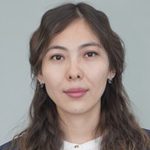
Assylzat Karabayeva
Assistant Professor, Department of International Relations and Regional Studies
More:
PhD in International Relations from the International University of Japan, Japan
Master of International Law and Economics, World Trade Institute, University of Bern, Switzerland
Bachelor of International Relations, Suleiman Demirel University, Kazakhstan
Visiting scholar at George Washington University’s Institute for European, Russian and Eurasian Studies
Courses taught at KIMEP: “Ethics in International Affairs”; “Theories of International Relations” and “Comparative Foreign Policy”
Research interest: Role of norms (ideas, identity, and culture) in both constraining and strengthening region-building processes in Eurasia.
Contact information: office # 117 Valikhanov building

Scott Burgess
Assistant Professor, Department of Media and Communications
More:
Mr. Scott Burgess, new Assistant Professor at the Department of Media and Communications, CSS, joined KIMEP in Fall 2023. Currently he is teaching courses: Advanced Media Writing; Editing and Communication Research.
Education:
PhD candidate at Wayne State University, USA
MA, Wayne State University, Detroit, USA
Bachelor degree from UCLA, USA
Research interests: perceptual biases in mass media including Hostile Media Effect and Third Person Effect and how the media can exacerbate these effects. He’s also interested in examining problems new journalists encounter when beginning their careers
Scott Burgess is a former journalist with more than three decades of experience. He has worked at small and large newspapers as a reporter and editor. He was the Middle East Bureau Chief for Stars & Stripes covering conflicts in Bosnia, Kosovo, Iraq, and Afghanistan. He was the Auto Critic at The Detroit News and the Detroit Editor at Motor Trend.
Contact information: office # 511 Valikhanov building

